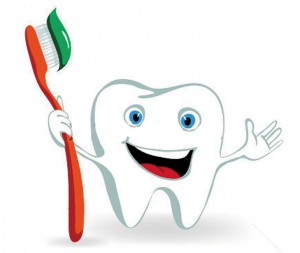For better oral hygiene, habit of frequent and proper tooth-brushing and flossing, at least twice a day, should be adopted. When efficiently used, Miswak mechanically removes plaque and also has anti-bacterial agents.
By Dr Gazala Danish

Dental decay also known as dental caries or dental cavity is one of the most prevalent, worldwide dental health problem. The term “dental” relates to teeth and the term “caries” refer to rotten. Dental caries is thus a tooth disease caused by bacteria leading to destruction of the tooth structure. The source of bacteria causing dental caries is plaque. Plaque is a thin pale yellow sticky film consisting of bacteria, salivary components and food debris, covering the tooth surface. It normally forms, and is removed by tooth brushing. The mouth has hundreds of species of bacteria. Not all these bacteria are harmful all the time, but they do have potential to cause disease when they get a suitable environment. Dental caries also has a hereditary component, wherein some people are at a higher risk of developing dental caries.
Dental caries occurs commonly on the chewing surfaces of back teeth (premolars and molars), where there are pits and fissures or grooves and on the lateral or side surfaces of teeth which approximate each other. These are the susceptible areas from where plaque cannot be effectively removed. As these areas cannot be effectively cleansed, there is more accumulation of plaque and food particles. Accumulation of food particles is more likely when we eat food stuff which is sticky such as refined carbohydrates. Refined carbohydrates are processed carbohydrates from which fiber content is removed, giving the food a finer texture as in snacks containing white flour and/or sugar. When these carbohydrates/sugars are left sticking to the tooth surface, bacteria in the plaque ferment these carbohydrates to form acids. The acid formed, causes dissolution of the tooth structure forming cavities. Initially it appears as a white spot, following which, the surface gets rough and stained and later frank cavitation occurs.
Dental caries is a multi-factorial disease. There have to be susceptible areas on the tooth surface. On these areas, there has to be retention of dietary carbohydrates. These carbohydrates have to fermented or metabolized by the bacteria. When all this happens over a period of time, it results in dental caries. Also dental caries is not a single step event. When there is fermentation of carbohydrates/sugars by the bacteria, acid is produced, due to which, minerals like calcium, phosphate ions diffuse out of the tooth causing demineralization of the tooth surface. This is however reversible. Given a favorable environment with better oral hygiene and proper dietary habits, the mineral ions present in the saliva cause re-mineralization of the tooth surface. Thus there are episodes of destructive demineralization and constructive re-mineralization. When destructive episodes predominate, the result is dental cavities.
Saliva plays an important role in preventing dental caries. Flow of saliva flushes food debris off the teeth, unless they are sticky enough. Saliva has a number of anti-bacterial substances combating bacteria of the mouth. It contains mineral ions helping in re-mineralization of the tooth surface. Therefore, in conditions where there is decrease in the salivary flow, risk of dental caries considerably increases. Salivary glands produce saliva and pour it into the mouth through the ducts.
Dental caries which is initially in the outer layer of the tooth progresses to the deeper layers. When dental caries is limited to outer layer (enamel) there is no pain. When dental caries spreads to the deeper layers there are symptoms such as pain and food lodgment. When the infection crosses the root tip to enter the jaw bone there can be additional symptoms like swelling and pus discharge.
The key for prevention of dental caries is to minimize accumulation of plaque and food debris- sugars and sticky carbohydrates. As a diet modification, frequent intake of sugar and refined carbohydrates should be avoided. For better oral hygiene, habit of frequent and proper tooth-brushing and flossing (at least twice a day) should be adopted. Chemical plaque control agents in the form of mouthwashes may also be used. When efficiently used, Miswak mechanically removes plaque and also has anti-bacterial agents. Apart from these measures, topical fluoride applications, oral prophylaxis (teeth cleaning and polishing) are among the procedures done by the dentist for prevention of dental caries. This basic understanding of dental caries should help us in adopting healthy dietary habits and adequate oral hygiene measures to prevent to an extent, the occurrence of dental caries.
(The writer can be reached at [email protected])

COMMENTS